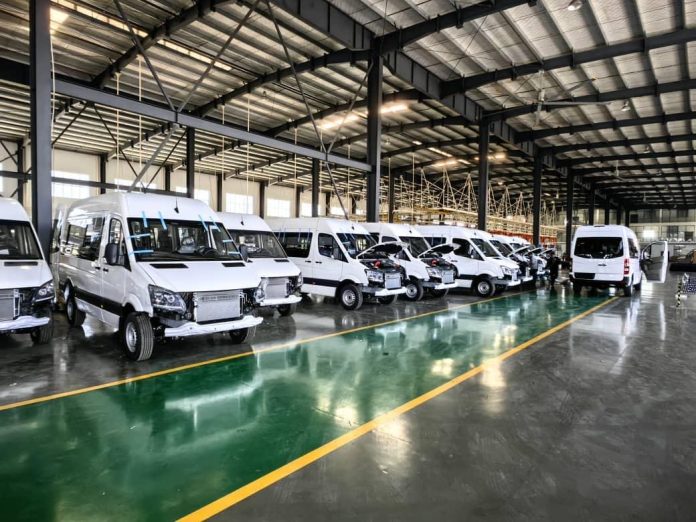The Federal Government has embarked on a significant initiative to convert 200 operational vehicles of the Nigerian Customs Service to run on Compressed Natural Gas (CNG). This move is part of a broader strategy to promote cleaner energy use and reduce carbon emissions across the country.
Cedric Masters Group, an automotive company, has been awarded the contract for this conversion, which is expected to be completed within 90 days. The conversion process was observed at the company’s plant located in the Lekki Area of Lagos, where many customs vehicles were seen undergoing modifications.
Oluwemimo Osanipin, the Director General of the National Automotive Design and Development Council (NADDC), emphasized the government’s commitment to shifting Nigeria’s automotive sector from Semi Knocked Down (SKD) to Completely Knocked Down (CKD) operations. This transition signifies a move towards local manufacturing and assembly of automotive parts, a critical step in boosting the nation’s industrial capacity.
During a recent visit to Cedric Masters’ assembly plant, Anselm Ilekuba, CEO of the company, praised the government’s initiative and highlighted the strategic importance of CNG as a cost-effective and environmentally friendly fuel option. He noted investments in expanding the CNG distribution network, which would contribute to lower energy costs for electricity generation.
“We must thank Mr. President for this visionary initiative. CNG represents a new era for Nigeria, and we are privileged to be at the forefront of this opportunity,” said Ilekuba.
The initiative aligns with broader economic goals, including job creation and infrastructure development. Osanipin expressed satisfaction with the progress made by Cedric Masters and other automotive assemblers in transitioning to CKD operations. He underscored the potential for increased local content in vehicle manufacturing, which would stimulate employment and bolster the economy.
The conversion project also reflects Nigeria’s proactive stance in adopting cleaner energy solutions amid global efforts to mitigate climate change. As more vehicles are converted to CNG and local manufacturing capacities are enhanced, the country anticipates significant socio-economic benefits and a reduction in dependence on traditional fossil fuels.
The NADDC continues to advocate for industry collaboration and the expansion of local component parts manufacturing to support the automotive sector’s growth trajectory. With ongoing training programs and technological advancements, Nigerian assemblers are poised to meet domestic demand while positioning themselves competitively in regional and global markets.
Overall, the conversion of customs vehicles to CNG marks a pivotal step towards sustainable transportation solutions in Nigeria, setting a precedent for future advancements in the automotive industry.













